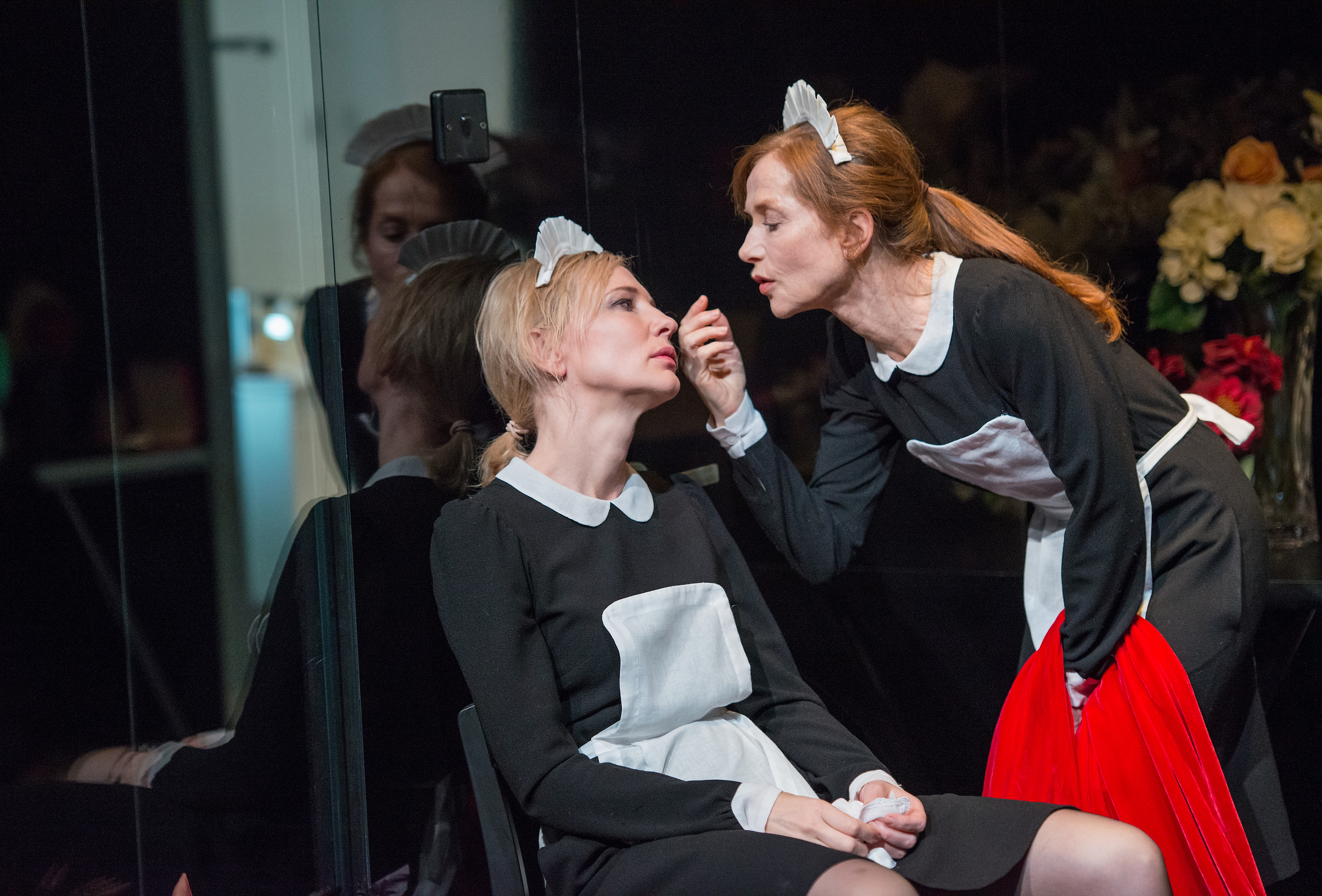
There are few hotter actresses in the world than Cate Blanchett. The regally blonde Australian beauty has had amassed a stellar resume of screen roles, ranging from classy impersonations (Queen Elizabeth I, Katharine Hepburn in The Aviator) to fantasy-movie icons (Galadriel in the Lord of the Rings trilogy) to her Oscar-winning turn last year as a Wall Street wife on the verge of a nervous breakdown in Woody Allen’s Blue Jasmine.
Her work on stage has been equally impressive. Touring with the Sydney Theatre Company (where she serves as co-artistic director along with her husband, writer Andrew Upton), she has won critical raves in such classic roles as Hedda Gabler, Blanche DuBois in A Streetcar Named Desire and Yelena in Uncle Vanya. So formidable is her stage reputation that her latest venture—a new production of Jean Genet’s The Maids — has become the theater event of the New York summer.
Genet’s 1947 play is a fine vehicle for her. Written by one of the most notorious outlaw-artists of the postwar avant-garde theater, Genet’s spiky one-act is based on a real life murder case, in which two sisters were put on trial for killing the mistress they both served as maids. But the play is hardly a straightforward docudrama; rather, it’s an intricate dance of role-playing and identity confusion, exploring class hatreds and expressing an outsider’s profound sense of disaffection and existential pain.
Playing Claire, the younger of the two sisters, Blanchett has a showy role that she digs into with relish. As the play opens, she and her sister, Solange (French star Isabelle Huppert) are in the midst of a role-playing ritual: Claire impersonating their mistress, Solange taking the role of her sister. Blanchett flounces through the play-acting with gusto, parodying her mistress’s haughty airs, obsessing over her wads of makeup and lavish wardrobe, berating her sister with disdain that only barely disguises real hatred. With the arrival of their mistress (the tall and delicious Elizabeth Debicki) the fantasy ends and the drama gains more traction, as we learn that the sisters have turned in their mistress’s lover to the police and they proceed to hatch (and botch) a plan to murder her.
Blanchett is ravishingly watchable throughout. But the production around her seems out of kilter. One problem is Huppert, who is neither very convincing nor very compelling as her sister. Her small frame is overwhelmed by the tall, strapping, more charismatic Blanchett, and her heavily accented English simply does not bring out the nuance and naturalistic menace in Genet’s language.
That language, moreover, has been needlessly coarsened by the new translation concocted by Upton and director Benedict Andrews. You don’t have to be a Genet purist to be put off by the profanity-laden transformation. Here, for example — in Bernard Frechtman’s 1954 translation — is how Solange addresses her sister as she escorts her offstage in a key scene near the end:
Come. Lean on me. There. Walk gently. We’ll be better off there, in our flowered domain. I have such sure ways of putting an end to all suffering.
And here’s how she sounds in Upton and Andrews’ crass, tabloidy rewrite:
Too tired? Then I’ll go it alone, darling sister. Shut up. You had the whole thing prepared. You had her right here. And you stupid, gutless, f–king c–t. Put your head back and open your f–king mouth.
In a word: ick.
Also bothersome is Andrews’ fussy, tricked-up production, with its overdressed set (an acre of flowers and a long rack of color-coordinated dresses stretch across the expansive stage) and continuous video projections above the actors’ heads: still-life shots of the flowers, makeup cases and other props onstage, mixed in with live shots of the actors in close-up or at odd angles — from underneath a dressing table, say, or in long-shot profile from the wings. Andrews has justified all this thematically as a way of reinforcing Genet’s role-playing device. But moment to moment on stage, the video projections are distracting — not to mention unflattering, especially to the 61-year-old Huppert.
Blanchett and her Sydney company deserve cheers for tackling a challenging work by an important, seldom-revived playwright (in America at least) and creating a must-see theatrical event in the process. The sellout crowd at City Center on the night I attended was the best dressed I’ve encountered in a New York theater in ages. They applauded warmly, and even rose for an obligatory standing ovation when the actors drew out their curtain calls long enough. But it seemed like a strain.
More Must-Reads from TIME
- Donald Trump Is TIME's 2024 Person of the Year
- Why We Chose Trump as Person of the Year
- Is Intermittent Fasting Good or Bad for You?
- The 100 Must-Read Books of 2024
- The 20 Best Christmas TV Episodes
- Column: If Optimism Feels Ridiculous Now, Try Hope
- The Future of Climate Action Is Trade Policy
- Merle Bombardieri Is Helping People Make the Baby Decision
Contact us at letters@time.com